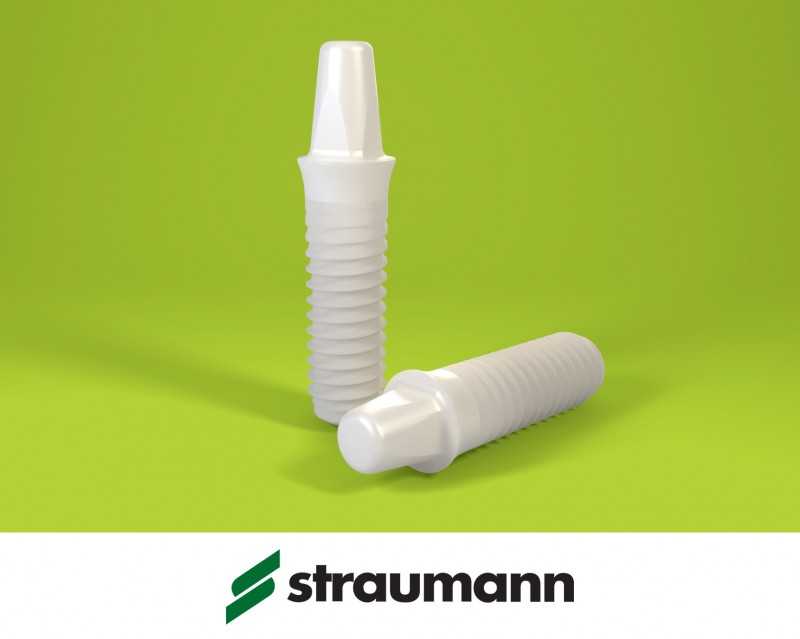
Safe and solid dentures: For whom are dental implants suitable??
The replacement for the missing tooth in the jaw is called: dental implant. The artificial tooth roots not only look like the original, but also fulfill their purpose just as reliably. But not all are suitable for dental implants. We explain why, among other things, depression can be an exclusion criterion and what solutions the dentist offers.
What are dental implants?
Dental implants are small screws that serve as the basis for a fixed or removable denture. In most cases, dental implants are made of titanium, but dentists and implantologists are now increasingly using ceramics as a material for the artificial tooth roots.
Advantages of dental implants:
- Healthy teeth are not ground
- Artificial tooth root prevents bone loss
- No strain on teeth and joints
- Firm bite as with real teeth
- Natural aesthetics
The implant itself can not be seen later. It is fixed under anesthesia in a surgical procedure in the jawbone. The visible part is the so-called superstructure, in the form of crowns, bridges and prostheses – according to the individual needs of the patient.
Why Dental Implants??
With dental implants, individual gullets, larger edentulous areas and completely edentulous jaws can be restored with teeth. In particularly difficult cases, the artificial tooth roots even stop in the zygomatic bone. The so-called Zygoma implants are particularly suitable for patients with a poor bone supply in the jaw.
The quality of the bone plays an important role in implant planning. In most cases, the dentist can rebuild the missing substance with bone replacement materials. Therefore, a poor bone supply is rarely an exclusion criterion for implants. But there are other reasons why implants are not suitable for every patient.
For whom are dental implants suitable??
In general, dental implants can be used once bone growth is complete. In particular, when lost teeth are to be replaced as quickly as possible, offers dentures on implants. Experienced dentists and implantologists today remove diseased teeth and place an implant within a single treatment. A little later, the patient laughs completely with an aesthetically beautiful ceramic dental crown (keywords: immediate implantation, immediate restoration).
Even a completely toothless jaw no longer has to wait for the dental prosthesis from the water glass: How dental implants bring back the enjoyment even after total tooth loss, read in our article Dentures for a better quality of life.
When is the supply of implants possibly critical??
It is also about the life habits, for example. According to the Federal Dental Association, the risk of implant loss in smokers is about twice that of non-smokers. This is mainly due to the poorer wound healing, because smoking is disturbed in the blood circulation in the vessels.
Talk against the use of implants:
- Advanced cancer
- An uncontrolled diabetes
- drug addiction
- Mental illness
- Acute myocardial infarction or stroke
- hemophilia
- Incomplete bone growth
- Untreated periodontitis
Depression can also be an obstacle to implantation. Scientists have found that antidepressants can have a negative impact on implant healing. The American researchers took a closer look at the data of implant patients at a single-tooth clinic in the state of New York. The result: 33 percent of them with problems with implant healing took antidepressants. Previously it was already known that the antidepressants in the form of serotonin reuptake inhibitors reduce bone regeneration and present a risk of fractures.
“It can happen in depression or schizophrenics, that the implantation is perceived as a very strong body changing surgery and becomes the subject of a psychosis. On the other hand, if someone is depressed, because the partner has split up or is in a life crisis and he wants to start with beautiful teeth, then I would definitely consider the implantation. “
We therefore always have to differentiate between diagnosis and medication. Of course, when it comes to medication, it can always affect the treatment, so we always clarify in advance the intake of medication or discuss it with the family doctor.” Dentist Lennard Bertram, Dental practice Bertram in Leer
What are alternatives to dental implants?
If the dentist advises against implantation, there is no need to live with the gap in the dentition. Above all, it is important to close the tooth gap as quickly as possible in order to avoid consequential damage such as bone loss and further tooth loss.
Possible alternatives to implants are:
- Fixed tooth bridge
- Removable partial or full denture
- Combined dentures with a telescopic prosthesis
Compared to implants, these solutions are more cost effective. For health, however, they are only suitable as plan B. To hold the bridges, the neighboring teeth must be ground. That may still cost healthy teeth substance! Even full dentures are often only a stopgap, because with them eating and talking difficult and they affect the taste through the palate plate.
How does the dentist help??
Incidentally, there is no age limit for implants. On the contrary: Especially seniors can gain in quality of life through the implant-supported dentures. The food with partial or full dentures is often difficult and is not fun on top of that. There is a threat of malnutrition. Implants can play their part in a healthy and enjoyable life!
The dentist and implantologist knows best what your health tastes like. He decides after a detailed examination, whether an implantation makes sense or another solution comes into question.
Related Posts
-

Dental Implants: Costs, Manufacturers, Experiences and Treatment
Everything about dental implants There are certainly many questions that you would like clarified if you lose one or more teeth and this through Dental…
-

Dental implants of her dentist in kassel
Dental implants – fixed dentures for a vital charisma and a good mouthfeel Missing teeth burden the self-esteem especially when the tooth gap (s) are in…
-

Implants dental implants dentures frankfurt westend – dentist westend frankfurt dr
Implants: more quality of life Eating, talking and laughing like with your own teeth There are several reasons why teeth can get lost: Caries ( Tooth…
-

Dental implants hannover, podbi344 implantologie hannover
Implantology Hannover – Quality of life with safety: dentures and dental implants Hannover Tooth loss is always a loss of quality of life. In our dental…
